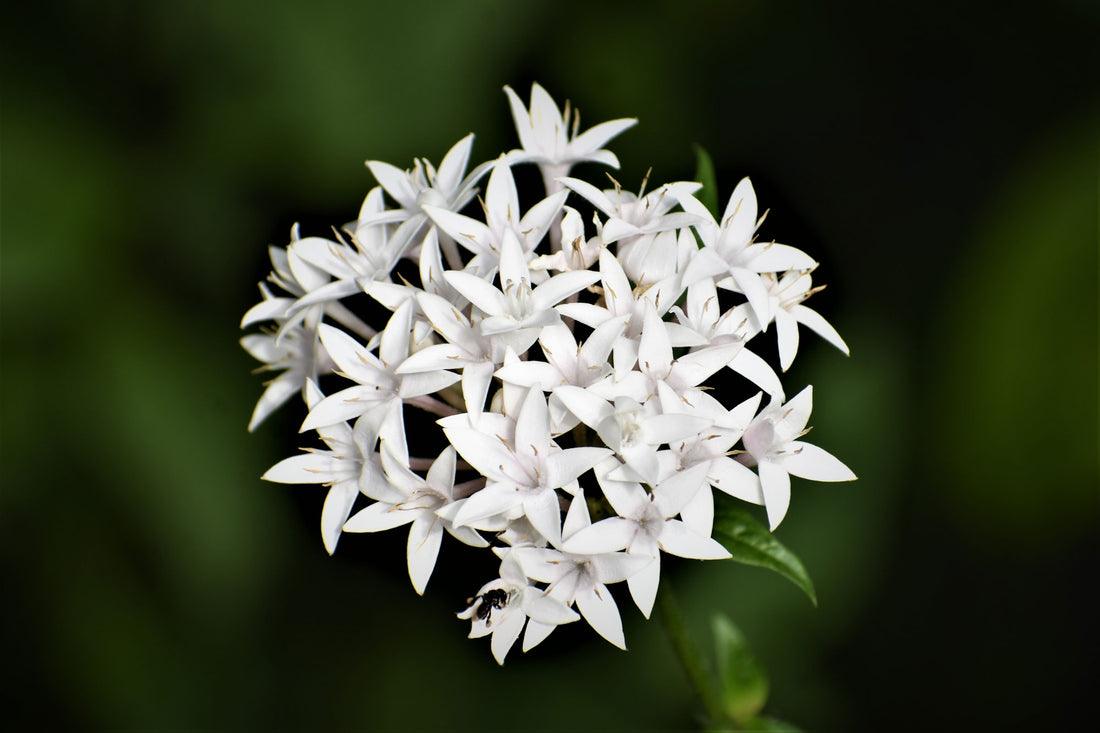Jasmine, a heart note
Jasmine is a heart note in natural perfumery. The fragrance of Jasmine is intensely rich with floral notes and tea like undertones. It is very heady narcotic with hints of sweetness. Many say there is no perfume without Jasmine. It blends well with everything. I do formulate some perfumes without Jasmine as there are a small percentage of people who do have a sensitivity to Jasmine.
Jasmine Grandiflorum & Jasmine Sambac
The two types of Jasmine I generally work with are Jasmine Grandiflorum and Jasmine Sambac (a night flowering Jasmine). Both are beautiful Jasmines with Jasmine Grandiflorum being fruitier and Jasmine Sambac being slightly more rich (indolic). The nuances among different varieties of natural, aromatic materials always continue to astound and inspire me.
Jasmine's origins
Jasmine is believed to have originated from India where there are dozens of different types. It is also native to China, the Middle East and some parts of western Asia. There are now more than 200 different types of this entrancing, fragrant shrub and I have had the pleasure of sampling delightful Jasmine from all over the world.

It is used extensively in high class floral and oriental style perfumes. Some of the renowned aromatherapy properties of Jasmine are as an antidepressant, carminative, sedative, and an aphrodisiac.
‘It produces feelings of optimism, confidence and euphoria. It is most useful in cases where there is apathy, indifference or listlessness.’ (1) Jasmine is well known for its properties as an aphrodisiac. ‘Jasmine releases inhibition, liberates imagination and develops exhilarating playfulness.’ (2) (reference's?)
How is Jasmine extracted
The Jasmine flowers are soaked in a solvent such as pure ethanol. The highly concentrated oil, which is known as an absolute, is left behind after the ethanol has been evaporated. The Jasmine absolute is very concentrated and has an extremely intense aroma. The Jasmine flowers are very delicate and would not survive the steam distillation method of extraction which is common for most essential oils, except for citrus oils which are cold pressed.
Jasmine flowers can also be extracted using the enfleurage method, which is no longer used commercially but many artisan perfumers use this method to create their own natural fragrant materials.
The surprising cost of Jasmine Absolute
Synthetic Jasmine costs from approximately $150 per kilo and natural Jasmine Absolute costs from $10,000 to $15,000 per kilo. As a natural perfumer I prefer the complex beauty of natural Jasmine and I have made a decision to never compromise by using synthetic materials.
Famous Jasmine perfumes include
Our Spray Perfumes with Jasmine
All our spray perfumes are made with botanical ingredients, pure alcohol and demineralised water.
Night Market
A heady floral, spicy scent with notes of Tuberose, Jasmine & Ginger.
Spiced Cocoa

Pepper Petal
Our Solid perfumes with Jasmine
All our solid perfumes are made from sustainably sourced organic Beeswax, Jojoba Oil, Vitamin E & natural botanicals.
Night Market
A heady floral, spicy scent with notes of Tuberose, Jasmine & Ginger.
Spiced Cocoa
A spiced, gourmand, scent with notes of Patchouli, Cacao & Pepper.





